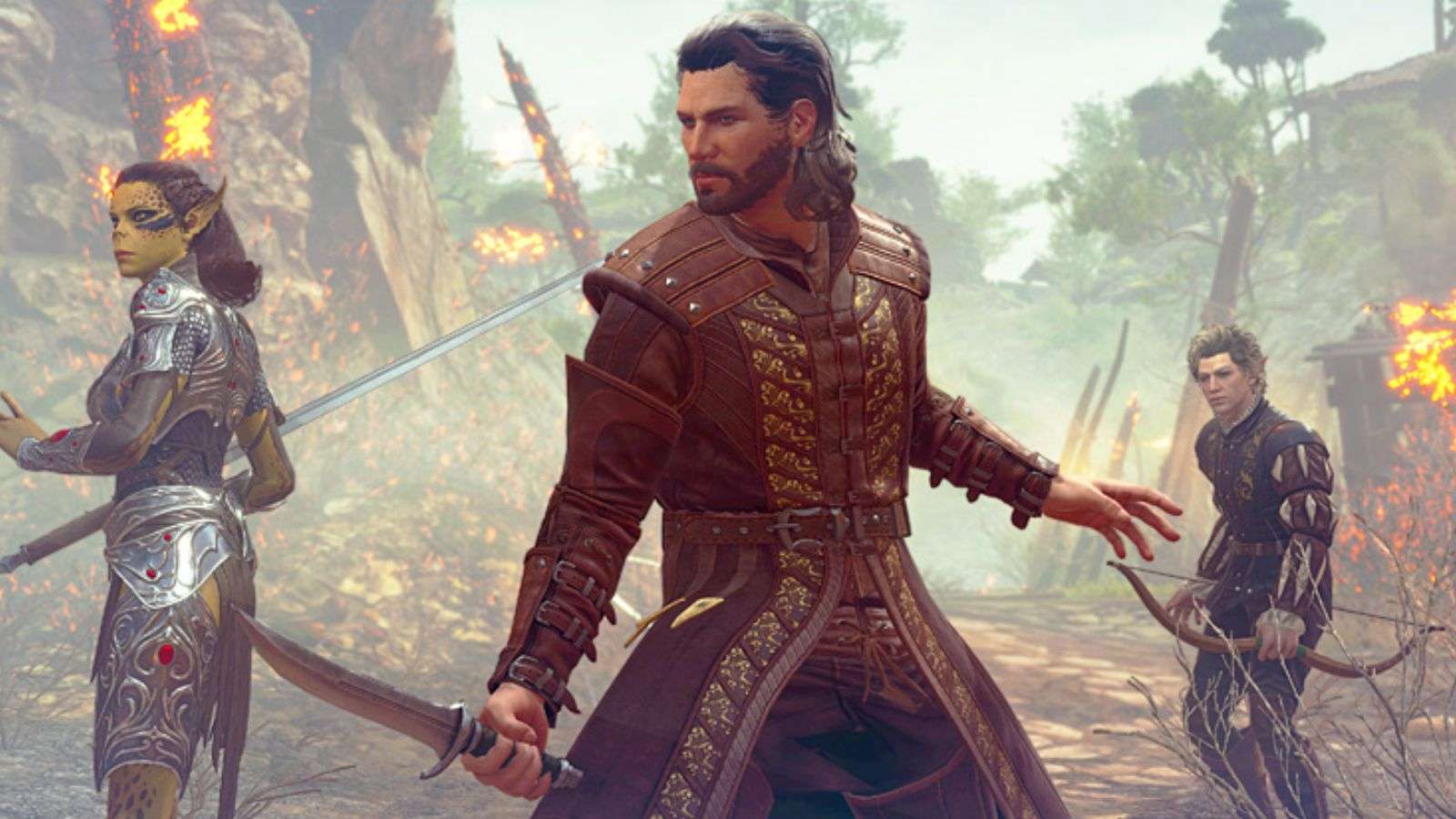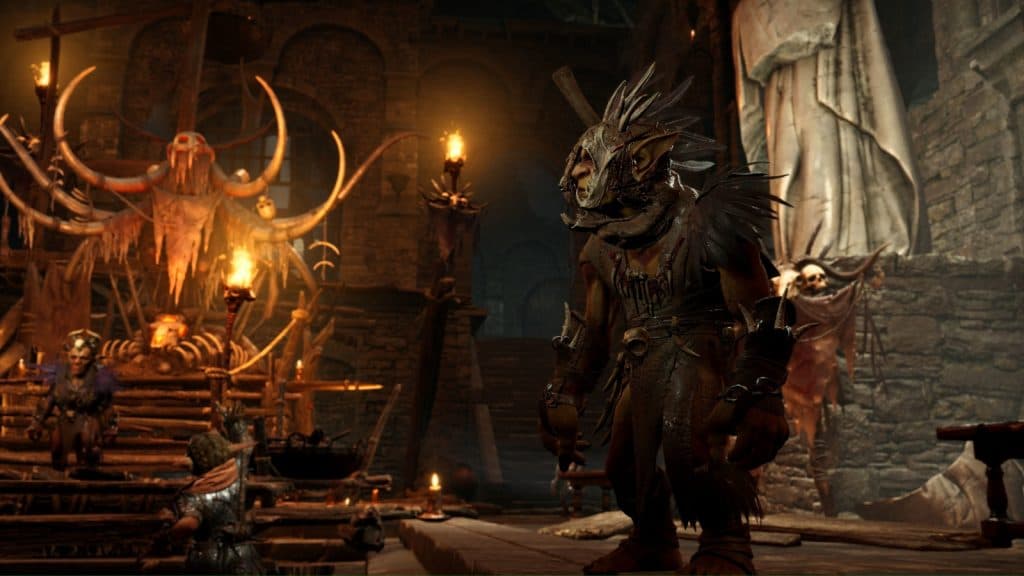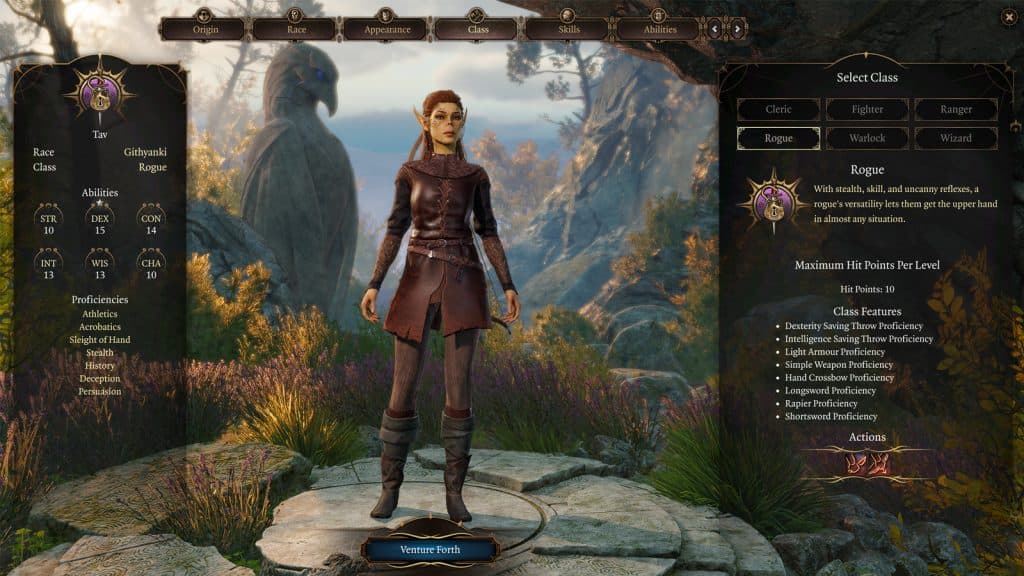All classes & subclasses in Baldur’s Gate 3
 Larian Studios
Larian StudiosIn Baldur’s Gate 3, players can select from 12 distinct classes, each with a multitude of subclasses, offering a diverse range of gameplay styles. To assist in your decision, here’s a comprehensive list of all the classes and subclasses in this Larian Studios RPG.
Choosing your class and subclass in Baldur’s Gate 3 significantly shapes your gaming experience. It adds a unique flair to your character, whether you prefer stealth, magic, or direct combat.
Whether you prefer to be in the middle of the action as a Barbarian, or attacking from a distance as a Ranger, it’s important to choose a class that’s suited to your preferred playstyle. So, if you’re still on the fence about which to go for, we’ve got a rundown of them all, including all the available subclasses.
All Classes & Subclasses in Baldur’s Gate 3
 Larian Studios
Larian StudiosAs of the game’s full launch, there are 12 classes to choose from, which are all the primary classes familiar and recognizable from the Dungeons & Dragons series. Each class has a subclass, which you’ll need to choose at level three, so it’s a decision you can take your time over.
Each class and its respective subclasses have been listed below for you to check out:
- Barbarian: Fighter with lots of hit points
- Subclasses: Wildheart, Berserker, Wild Magic
- Bard: Musician with magic
- Subclasses: College of Valour, College of Lore, College of Swords
- Cleric: Religious fighter who works best as a healer
- Subclasses: Knowledge Domain, Life Domain, Light Domain, Nature Domain, Tempest Domain, Trickery Domain, War Domain
- Druid: Magic-heavy creature of nature, can also transform into animals
- Subclasses: Circle of the Land, Circle of the Moon, Circle of the Spores
- Fighter: A proficient fighter who deals strategic hits, like a soldier
- Subclasses: Eldritch Knight, Battle Master, Champion
- Monk: Instead of using swords, they use martial weapons like fists
- Subclasses: Way of the Four Elements, Way of the Open Hand, Way of Shadow
- Paladin: Similar to a Cleric, a religious fighter but with a focus on damage
- Subclasses: Oathbreaker, Oath of Devotion, Oath of the Ancients, Oath of Vengeance
- Ranger: Archers or ranged attacks with a focus on nature
- Subclasses: Beast Master, Hunter, Gloom Stalker
- Rogue: Thieves, they prioritize stealth and speed, dealing huge damage
- Subclasses: Assassin, Arcane Trickster, Thief
- Sorcerer: A spellcaster with magic in their blood rather than through a book
- Subclasses: Draconic Bloodline, Wild Magic, Storm Sorcery
- Warlock: A spellcaster who got their magic from an otherworldly source
- Subclasses: Archfey, The Fiend, The Great Old One
- Wizard: A spellcaster who can learn their magic and practice it from books.
- Subclasses: Abjuration, Conjuration, Divination, Enchantment, Evocation, Necromancy, Illusion, Transmutation
What are Classes & Subclasses in Baldur’s Gate 3?
 Larian Studios
Larian StudiosClasses are essentially the roles you’ll play in Baldur’s Gate 3. Your class chooses how you go about combat and social interactions, allowing you to approach each situation differently.
For example, in a combat situation, a Barbarian will likely rage and rush into the battle, whereas a Rogue will sneak behind the enemy, surprising them, and a Wizard will cast a spell on the creature, dealing damage or causing them to be paralyzed.
Once you’ve chosen a class, at level three you’ll be instructed to choose a Subclass. A subclass is a specialization of such a class, with the player needing to choose a certain path. These paths will grant you alternate abilities.
Take a Rogue, when they hit level three, they can choose to become an Assassin, Thief, or Arcane Trickster. An Assassin prefers to sneak through the shadows to get the drop on an enemy, while an Arcane Trickster will use magic to manipulate a situation in their favor.
While choosing your perfect match, take a look at some of our other handy Baldur’s Gate 3 guides and content:
Best Sorcerer build | Best Bard build | Best Rogue build | Best Fighter build | Best Ranger build | Best Barbarian build | Best Druid build | Best Warlock build | Best Wizard build | Baldur’s Gate 3: What’s the max level cap? | Best Baldur’s Gate 3 classes tier list | How to revive characters in Baldur’s Gate 3 | Can you multiclass in Baldur’s Gate 3 | Baldur’s Gate 3 Soul Coins: How to get them & what they are | Baldur’s Gate 3: Fastest ways to get XP & level up | Baldur’s Gate 3: How to respec your character | Baldur’s Gate 3 Karmic Dice: What are they?